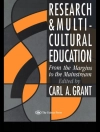Global Downtowns reconsiders one of the defining features of urban life—the energy and exuberance that characterize downtown areas—within a framework of contemporary globalization and change. It analyzes the iconic centers of global cities through individual case studies from Europe, Asia, Africa, Latin America, and the United States, considering issues of function, population, imagery, and growth. Contributors to the volume use ethnographic and cultural analysis to identify downtowns as products of the activities of planners, power elites, and consumers and as zones of conflict and competition. Whether claiming space on a world stage through architecture, media events, or historical tourism or facing the claims of different social groups for a place at the center, downtowns embody the heritage of the modern city and its future.
Essays draw on extensive fieldwork and archival study in Beijing, Barcelona, New York, Los Angeles, Chicago, Dar es Salaam, Dubai, Nashville, Lima, Philadelphia, Mumbai, Havana, Beirut, and Paris, among other cities. They examine the visions of planners and developers, cultural producers, governments, theoreticians, immigrants, and outcasts. Through these perspectives, the book explores questions of space and place, consumption, mediation, and images as well as the processes by which urban elites learn from each other as well as contest local hegemony.
Global Downtowns raises important questions for those who work with issues of urban centrality in governance, planning, investment, preservation, and social reform. The volume insists that however important the narratives of individual spaces—theories of American downtowns, images of global souks, or diasporic formations of ethnic enclaves as interconnected nodes—they also must be situated within a larger, dynamic framework of downtowns as centers of modern urban imagination.
قائمة المحتويات
Introduction: Globalizing Downtown
-Gary W. Mc Donogh and Marina Peterson
PART I. IMAGINATION
1. Toward a Genealogy of Downtowns
-Robert Rotenberg
2. From Peking to Beijing: Production of Centrality in the Global Age
-Xuefei Ren
3. Simulations of Barcelona: Urban Projects in Port Spaces (1981- 2002)
-Francesc Magrinyà and Gaspar Maza
4. Urbanist Ideology and the Production of Space in the United Arab Emirates: An Anthropological Critique
-Ahmed Kanna
PART II. CONSUMPTION
5. Reaching for Dubai: Nashville Dreams of a Twenty-First-Century Skyline
-Richard Lloyd and Brian D. Christens
6. From National Utopia to Elite Enclave: ‘Economic Realities’ and Resistance in the Reconstruction of Beirut
-Najib Hourani
7. When the Film Festival Comes to (Down)Town: Transnational Circuits, Tourism, and the Urban Economy of Images
-William Cunningham Bissell
8. The Future of the Past: World Heritage, National Identity, and Urban Centrality in Late Socialist Cuba
-Matthew J. Hill
PART III. CONFLICT
9. Utopia/Dystopia: Art and Downtown Development in Los Angeles
-Marina Peterson
10. ‘Slum-Free Mumbai’ and Other Entrepreneurial Strategies in the Making of Mumbai’s Global Downtown
-Liza Weinstein
11. Downtown as Brand, Downtown as Land: Urban Elites and Neoliberal Development in Contemporary New York City
-Julian Brash
12. Beside Downtown: Global Chinatown
-Gary W. Mc Donogh and Cindy Hing-Yuk Wong
Notes
Bibliography
List of Contributors
Index
Acknowledgments
عن المؤلف
Marina Peterson is Associate Professor in the School of Interdisciplinary Arts at Ohio University and author of Sound, Space, and the City: Civic Performance in Downtown Los Angeles, also available from the University of Pennsylvania Press. Gary Mc Donogh is Professor in the Growth and the Structure of Cities program at Bryn Mawr College. He has written and edited many books, most recently Iberian Worlds.












